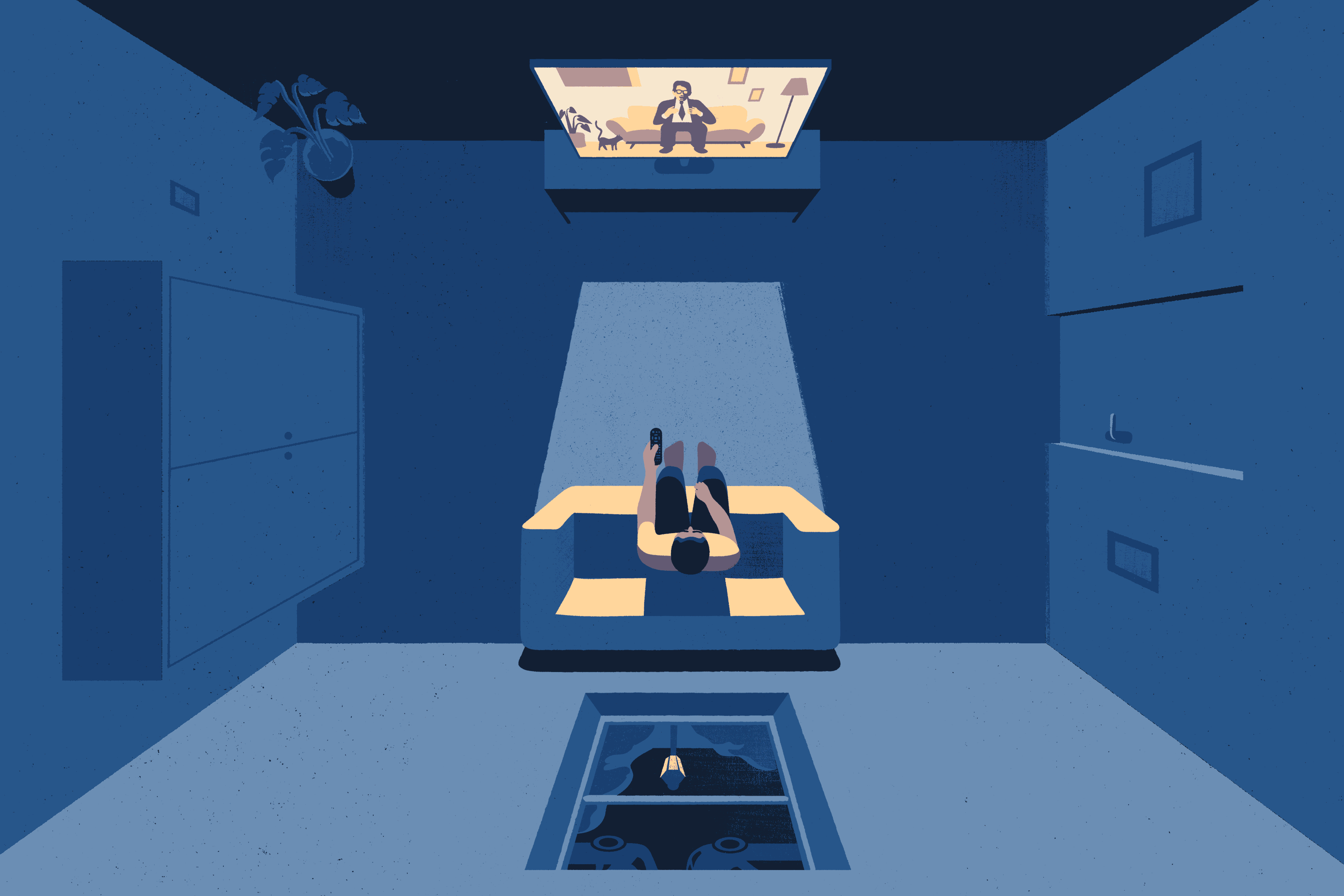TNT’s ‘Snowpiercer’ strips the film version for parts. It’s still violent, pulpy fun
- Share via
TNT has taken Bong Joon Ho’s 2013 film “Snowpiercer” almost down to its studs and built it back up again as a TV series, premiering Sunday. It has taken some time to arrive, with unscheduled stops for repairs and arguments about which way it should head, but what’s here is good fun, in a rarely humorous, often violent way. It’s pulp, played with commitment and righteousness.
The Earth is a giant snowball — global warming and war made the planet hot, and a technological fix froze it solid. For seven years, Snowpiercer, a 1,001-car train and rolling metaphor for the class system, has been running in large, possibly global circles, however that might be possible. Aboard are some 3,000 survivors, the last living things on Earth — it’s minus 183 degrees outside — apart from some pets, fish and livestock, the rest of the world apparently having been too busy skiing and building snowmen to figure out other ways to stay alive. It’s only by moving forward that the train generates the energy to keep moving forward, and the heat turned on.
A mode of communication designed to get us to stay home, often skewered as the “boob tube” or “idiot box,” TV kept its lights on as others flickered out.
Snowpiercer owes its existence to Mr. Wilford of Wilford Industries, who is never seen, though his last initial is stamped all around the place. I bet you can guess his secret faster than the people who have been traveling on his train for seven years. Melanie Cavill (Jennifer Connelly) is the “voice of the train,” making public service announcements over the PA and keeping things in order. This involves a certain amount of fascism and police brutality, if you are thinking of liking Melanie too quickly — it’s Jennifer Connelly, after all — along with some biblical justice.
The train is divided into classes, like the Titanic, with limited movement from one to another. Close to the front are your typical collection of rich jerks, living it up in plush surroundings; the most hateful and noisiest of these are a family called the Folgers, which I found personally disturbing because that is what my in-laws are called and they are very nice. Down in what is called the Tail is a population of stowaways who forced themselves aboard at the last minute and subsist on what look like bricks of manure, in cramped quarters where the light of day ne’er has pierced. In between are a couple of layers of service classes. The train is cleverly and mostly believably imagined, a linear city with restaurants and snack bars, an aquarium, gardens — one of each, anyway. (Melanie’s modest quarters are an especially plausible, informative invention, set design fans.) It seems a little wide — and inconsistently so — but who knows what rail cars will look like in whatever future year this is set.
The movie was essentially a journey from stern to stem as the fed-up, unfed poor made their revolutionary way into the light. The television show, on the other hand — though it will get around to some action-packed social upheaval before the season’s end — starts as a crime procedural, as Andre Layton (Daveed Diggs), a homicide detective in his old life, is conscripted to help solve a murder higher up the food chain. It was a smart idea to throw a detective into this scenario. By tradition, they move through low and high society with ease, and Melanie has given Layton carte blanche. (That does not mean they will fall in love; Andre has enough to handle on that point.) Diggs makes a good detective, initially reluctant but hopelessly devoted to the truth, but the plot moves on to other business. I have no great argument with the direction.
In Hulu’s “The Great,” star Elle Fanning and creator Tony McNamara give Catherine “The Favourite” treatment.
There is some old-school suspense, of the sort where the thing has to be fixed before the thing gets to the thing and the bad thing happens, at the risk of some brave person’s life. There are timely, refreshingly straightforward declarations along the lines of “We have a duty to each other and to the workers and to the weakest among us” — it’s not exactly right to say that the series offers a critique of capitalism, but it doesn’t not offer one, either.
A cornucopia of characters inhabit the train and show — cops and doctors and drug dealers, engine drivers and waiters and bartenders and burlesque dancers, freedom fighters and fighters against freedom. (It’s a big train.) Some are in love, some are angry, some sad, some all of the above, and there are many intense declarations of feelings. (Even when a scene turns corny, the actors swing for honesty.) They’re too numerous to name, but I do feel I should mention the presence of Mike O’Malley as a security chief, TV stalwart that he is. The weirdness of their lives, cooped up against a lethal world, feels very familiar.
More to Read
The complete guide to home viewing
Get Screen Gab for everything about the TV shows and streaming movies everyone’s talking about.
You may occasionally receive promotional content from the Los Angeles Times.








